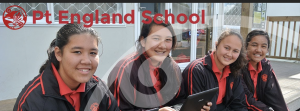 This is the seventh article in the series Baskets of Knowledge from Aotearoa New Zealand, which highlights insights from a totally different education system about what is possible in transforming our education system. Read the first article here.
This is the seventh article in the series Baskets of Knowledge from Aotearoa New Zealand, which highlights insights from a totally different education system about what is possible in transforming our education system. Read the first article here.
What a gift it was to enjoy a morning with Russell Burt at Pt. England Primary in Auckland. Burt and his wife Dorothy have spent their adult lives seeking ways to improve the lives of students and families who are most marginalized from mainstream society. They embrace the cultures of the families they serve. They dig deep into the research on the science of learning, instruction, and assessment to figure out how to pull the pieces together to optimize learning. They are on a continual search for a way to organize classrooms, schools, and communities that will help every student thrive and discover their fullest potential.
I talked with Russell Burt about the challenge when students enter schools with a wide degree of skills. It’s hard to talk about it without using a deficit framing. The children at Pt. England Primary generally enter “language impoverished, about two to three years behind the national norm.” Let me clarify: language impoverished in terms of English.
Burt reflected upon the power of culture and language in shaping learning. “Language shapes how students engage in each and every of the academic subjects,” he said. He had explained that some of the cultural and linguistic features of the Pasifika community have to be taken into consideration at Pt. England. For example, their language doesn’t use positional prepositions such as “below” or “above,” instead relying on context. Thus, teaching Pasifika students the use of prepositions in the English languages requires engaging in the culture itself and helping them learn to code-switch.
Another example is that Pasifika adults tend to be directive in their communication with their children. “We want children to be engaged in elaborative conversations,” Burt explained. “Language is how we enter into and engage with concepts. We need language to build understanding. And the language we use is based firmly within the way people speak with you and the way you use language on a daily basis. It’s not just about asking great questions, it’s about the language we have available to engage with the ideas.”
“We are gifting language to children when we provide more information,” he continued. Thus, teachers at Pt. England are encouraging parents to talk with their children. If the child points out a bird, add “It has feathers to help it fly” or “Look at the different colors on its wing.” Burt said, “The lights come on. Parents feel ‘I can do that.’ It doesn’t make them nervous. We aren’t asking them to change their culture. The know a lot about the world. We just want them to share it with their children.”
At the end of the morning, our conversation turned to what else can be done to support students. Burt was clear, “Tell the truth in love.” He believe that children and their families need to know the truth about where students are in their position on the curricular level and progress. But it’s much easier for parents to understand chronological age as compared to curricular level. So the way we communicate with parents needs to be able to bridge viewing children based on their age and communicating position and progress. Burt turned to a white board to explain a graphic visualizer that they are working on that brings a true picture of where students are but with a developmental approach and softer imagery to engage parents.
Burt also believes that part of the answer is in prenatal health care and early childhood development. Māori and Pasifika children participate less in early childhood development than Pākehā (European) children. He has been involved with a research project that he hopes will lead to greater investments in early childhood development and includes the goal of building up core language and well-being.















